Warning! Poor brakes can cause road accidents.
When you need your brakes serviced, you cannot afford to make any mistakes. It makes sense to leave your vehicle with Australia’s number one experts in brakes. We only use the highest quality, new and remanufactured brake parts.
The assurance of knowing is priceless
Here are the some of the brake services we offer for your car, van, bus, truck or caravan:
- Front and Rear Reline – Worn components are replaced with parts that match or exceed original manufacturer’s specifications, or when an upgrade or change in driving conditions demands a different performance standard.
- Disc and Drum Machining – For optimum life, smooth operation and better performance.
- Disc Grinding – To match original manufacturer’s specifications for smooth operation and optimum life.
- Caliper servicing and overhaul – like any moving component of a car, calipers need attention and service. A worn caliper is dangerous.
- Wheel cylinder replacement and service – Even for rare components, ABS Auto has the skill and access to stocks across Australia, either to replace or refurbish parts.
- Hydraulic Service – Brake systems rely on effective hydraulic parts and fluid to make a car stop as it should. From the booster to the pedal, we can ensure all components run smoothly and safely.
- Disc Rotors – Rotors are the heart of the modern car’s braking system. Rotors do wear and must remain within manufacturer’s thickness tolerances for safe and efficient performance. Upgraded rotors are available for heavy towing and performance driving.
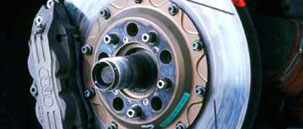
Are your brakes trying to tell you something?
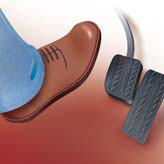
|
Sticking Brake PedalIf your pedal fails to release, this may indicate a faulty master cylinder. If left too long, this condition causes serious damage, requiring expensive repairs. This can lead to total brake failure.
|
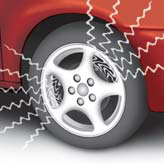
|
Noisy BrakesNoisy brakes indicate the possibility of worn brake pads or linings. If your car is displaying this warning sign, have it checked immediately.
|
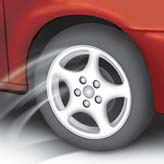
|
Car Veers on BrakingIf your car veers or pulls to one side when you apply the brakes. It may be as simple as adjusting your tyre pressure or the problem may be with your braking system, particularly the calipers.
|
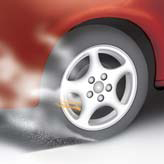
|
Locking BrakesIf your brakes grab or lock with only light pressure. The most probable cause is grease or oil on your brake linings. There may also be loose or broken components that could cause your brakes to fail in an emergency. |
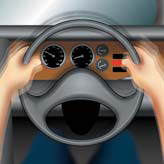
|
Vibration (Steering wheel or vehicle)If there is a vibration in the pedal, steering or entire vehicle when you apply the brakes. this can indicate problems with the brake drum or rotor, a faulty steering mechanism, or other loose components. These conditions all affect the handling of your vehicle. |
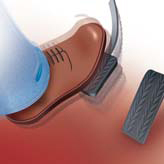
|
Pulsating Brake pedalIf your brake pedal pulsates under foot when pressure is applied. Most likely, the brake disc or drums are out of true alignment. This can be dangerous in wet conditions, can lead to increased wear on the braking system and uneven tyre wear. |
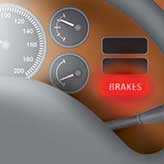
|
Warning LightIf your brake warning light comes on, your brakes could be near total failure. If your car is displaying this warning sign, get it checked immediately. |
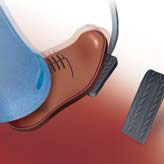
|
Hard PedalIf extreme foot pressure is required to depress your brake pedal, get your brakes checked immediately. The underlying cause could be with the power brakes, or possibly restricted hydraulic lines, frozen calipers or wheel cylinders, or damaged brake linings. All of these problems demand immediate attention to ensure that your brakes continue to function effectively and safely. |
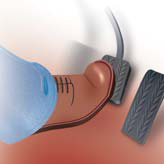
|
Low PedalIf your brakes do not activate until the brake pedal is almost touching the floor. A quick check-up will soon identify the problem. You need your brakes to respond quickly in an emergency, so do not ignore this problem. |
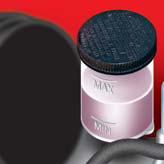
|
Spongy Brake PedalIf your brake pedal feels spongy after heavy use, this could indicate moisture in the brake fluid. Clean brake fluid is critical to the performance of your brakes. Moisture in the system reduces braking efficiency and can corrode brake components, potentially resulting in total brake failure. |



